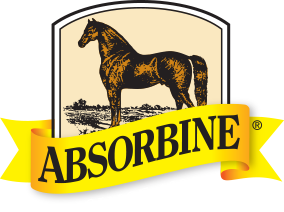 Hoof Nutrition Intelligence is a twice-a-month web segment that is designed to add to the education of footcare professionals when it comes to effectively feeding the hoof. The goal of this web-exclusive feature is to zero in on specific areas of hoof nutrition and avoid broad-based articles that simply look at the overall equine feeding situation.
Hoof Nutrition Intelligence is a twice-a-month web segment that is designed to add to the education of footcare professionals when it comes to effectively feeding the hoof. The goal of this web-exclusive feature is to zero in on specific areas of hoof nutrition and avoid broad-based articles that simply look at the overall equine feeding situation.
Below you will find Part 1 of the latest question and answer installment that you can share with your footcare clients.
Q: Do I need to pay extra attention to salt intake by my horses during the hot summer months?
By Juliet M. Getty
A: Your horse sweats more during the summer, making electrolyte supplementation worth considering. But electrolytes alone will not protect against dehydration. Your horse needs to have enough sodium (salt). Offering 1 ounce per day (2 tablespoons) is adequate for maintenance during cool months, but hot, humid weather calls for at least 2 ounces per day, and more if your horse is in work of any kind.
One way to accomplish this: provide a plain, white salt block, Redmond salt rock or Himalayan salt rock in close proximity. But make sure your horse licks it; many horses do not, due to tiny scratches that form on the tongue. Even better is to offer coarsely granulated salt free choice by pouring some in a small bucket. You can also add salt to each meal. Iodized table salt and Redmond and Himalayan rocks offer a small amount of iodine. Take this into consideration if your horse already receives iodine from another source. Total iodine intake should not exceed 5 mg per day.
Be aware that electrolyte supplements should be given only to a horse that is already in good sodium balance. They are designed to replace what is lost from perspiration and should contain at least 13 grams of chloride, 6 grams of sodium and 5 grams of potassium per dose. If your horse works more than 2 hours at a time, provide a dose of electrolytes after exercise by adding it to a gallon of water, topdressing a feed or offered it via syringe. And always be sure to keep fresh, clean water nearby.
Located in Lewisville, Texas, Juliet M. Getty, Ph.D. is an independent equine nutritionist with a wide U.S. and international following. Her research-based approach optimizes equine health by aligning physiology and instincts with correct feeding and nutrition practices.
Hoof Nutrition Intelligence is brought to you by W.F. Young Co. (Absorbine). 
Like many significant achievements, Absorbine® grew out of humble beginnings—and through the tenacity of someone willing to question the status quo. In this case, it was a young woman in late 19th-century Massachusetts: Mary Ida Young. Her husband, Wilbur Fenelon Young, was an enterprising piano deliveryman who relied on the couple’s team of horses to make deliveries throughout the Northeast. Inspired by Mary Ida and Wilbur’s vision, Absorbine® has continued to add innovative products throughout the years — products used every day by horse owners around the world. Which is why, since 1892, we’ve been The Horse World’s Most Trusted Name®.
Click here to read Part 2 of the July 15, 2016 installment: How critical are amino acids in horse health and having quality hooves?
Click here to read more installments of Hoof Nutrition Intelligence.

Post a comment
Report Abusive Comment